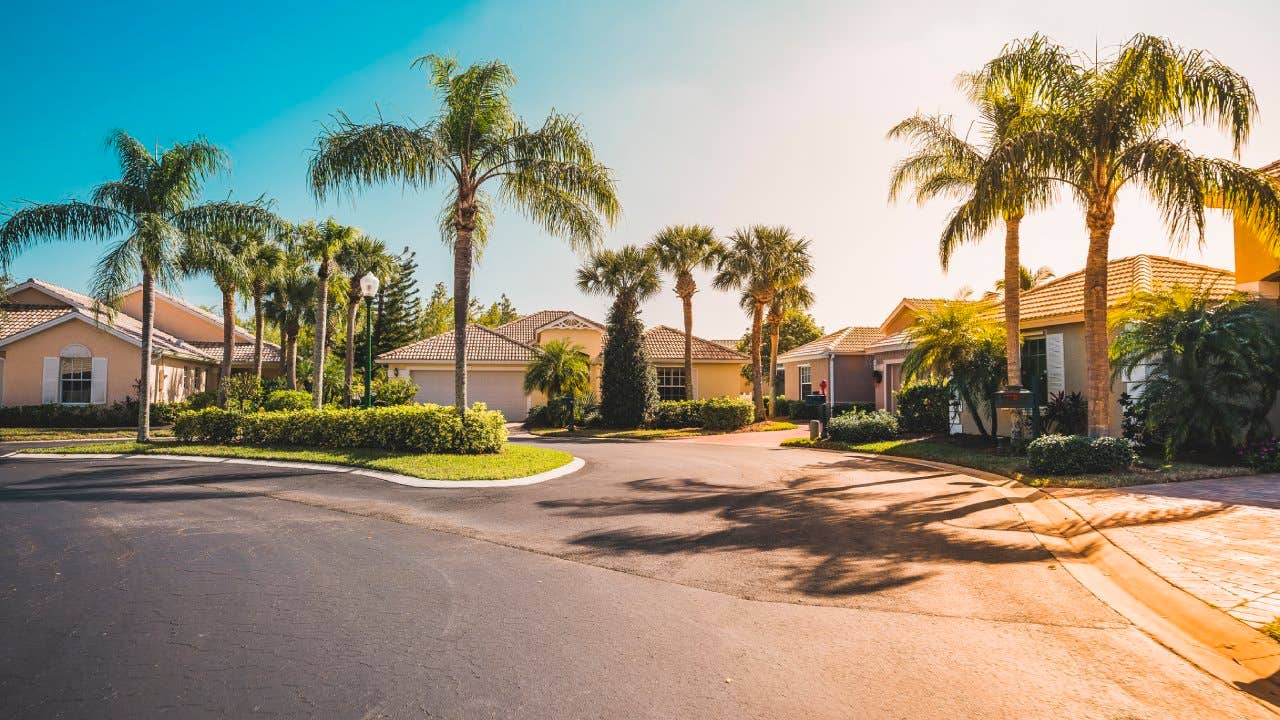Closing costs in Florida: Who pays for what?

Whether you’re thinking about buying a house in Florida or selling the one you currently own, there will be one cloud in the Sunshine State sky: closing costs. These encompass the many extra fees involved in a real estate transaction beyond the property’s asking price.
While Florida is known for a relatively low cost of living due to a lack of income tax, the state’s average closing costs are among the highest in the country. Before you enter the market, here’s everything you need to know about closing costs in Florida, and who pays for them.
How much are closing costs in Florida?
The most recent data from CoreLogic’s ClosingCorp shows that the average total for closing costs in Florida, not including real estate agent commissions, adds up to 2.3 percent of a home’s sale price. For a median-priced home in the state — which ran $409,400 in July 2024, according to Redfin data — 2.3 percent comes to $9,416.
But of course, that varies widely depending on an area’s typical housing costs. For example, in Sarasota — which tops Bankrate’s list of Best Places to Live in Florida — the median home price in July was $484,000, which would result in $11,132 in closing costs. Head north to Jacksonville, though, and the median was just $310,500, with much lower closing costs of $7,141.
However, every real estate transaction is unique. Homebuyers have an easy path for calculating closing costs: They are spelled out in the loan estimate you’ll receive within three days of submitting your application for financing, and you can compare costs from a few different lenders.
Who pays closing costs in Florida, buyers or sellers?
In Florida, as in any state, both buyers and sellers pay a portion of a transaction’s closing costs. Certain parts of the state have unique customs when it comes to who pays for what. For example, sellers throughout most of the state pay for an owner’s title insurance policy for the buyer, but in several of the most populous counties (including Miami-Dade), the buyer typically covers that expense. Here’s a further breakdown of who typically pays for which costs:
Common closing costs for buyers
- Lender fees: When choosing a mortgage lender, pay close attention to how much they charge in fees. Many lenders charge fees for everything from the application to originating the loan to running a credit check.
- Home appraisal: Your lender will require a professional home appraisal to verify the house is worth at least the amount they’re loaning you. This will likely run several hundred dollars (or more depending on size and location).
- Home inspection: A home inspection isn’t required, but for another few hundred dollars, it’s a smart investment. And if any issues are uncovered, you may be able to negotiate money back from the seller.
- Prepaids: You’ll likely need to prepay a certain amount of homeowners insurance premiums and property taxes upfront at closing. These will be held in escrow and disbursed as needed.
- Mortgage points: If you opt to lower your interest rate by purchasing mortgage points, which will cost you more upfront but save money over the life of the loan, that amount will be due at closing.
- Legal fees: Similarly, if you hire a real estate attorney to represent your interests in the transaction — which you’re not required to do but is smart nevertheless, given how much money is at stake — their fee will also be due at closing.
Common closing costs for sellers
- Commission fees: Your real estate agent’s commission will likely run somewhere between 2.5 and 3 percent of the home’s sale price. On a median-priced $409,400 Florida home, 2.5 percent comes to $10,235. Depending on the details of your deal, the seller may be responsible for paying the buyer’s agent’s fee as well, which would double that amount.
- Documentary stamp taxes: Florida’s documentary stamp tax, commonly called transfer taxes in other states, often falls to the seller. The rate is $0.70 per every $100 of value throughout most of the state. On a $400,000 sale, that’s $2,800. Rates are different for both single-family homes and other property types in Miami-Dade County.
- Outstanding property taxes and HOA fees: Property tax obligations and homeowners association dues (if applicable) will need to be paid right up until closing day.
- Mortgage-payoff fees: If the home still has an existing mortgage, you’ll have to pay that off in full before ownership can transfer. There may be wire-transfer fees and other costs involved.
- Seller concessions: Sellers often offer to pay for a needed repair or cover a portion of the buyer’s closing costs. If this is the case for you, the amount will be paid at closing.
- Legal fees: As with buyers, if you opt to hire legal representation, that cost will also be due at closing.
Lowering your closing costs in Florida
Many aspects of real estate are negotiable, including who pays for what on closing day. Depending on the local market conditions, either the buyer or seller may have a bit more bargaining power than the other party.
Sellers should keep in mind that their biggest selling expense, the real estate agent commission, may be negotiable. Getting your agent to reduce their rate can make a meaningful difference: For example, if your agent accepts a 2.5 percent commission instead of 3 percent, and your home sells for $500,000, you’ll save $2,500.
For buyers, it’s important to shop around and compare offers from multiple mortgage lenders to see where you’ll score the best rate and loan terms. Additionally, if a problem is found during your home inspection, you can request that the buyer help cover the cost of the repair. And thanks to new commission rules, buyers might now be responsible for paying their own agent’s fee, so be sure to check if that’s the case and negotiate for a lower commission rate if possible.
Find a local real estate agent
Whether you’re buying or selling, finding the right real estate agent is crucial for understanding closing costs in Florida. Every deal is different, and laws can differ from one locale to another. Realtors know their local markets inside-out, and they know how to negotiate the details to make sure your bottom line looks good.
- The home insurance market in Florida is in crisis. Since 2017, many insurance carriers have left the state, gone insolvent or tightened their underwriting restrictions, making it difficult for homeowners to find coverage. Many of the companies that remain have chosen not to renew existing policies, leaving owners in the lurch.
- Fraudulent roofing claims are mostly to blame, and the devastating effects of Hurricane Ian in September 2022 complicated the issue further. According to a report from the governor’s office, Florida accounts for 79 percent of the country’s home insurance lawsuits.
- New insurance-reform laws went into effect in 2022 to try to stabilize the situation, but it may be some time before these laws produce meaningful results, and homeowners could see premiums that exceed several thousand dollars a year. Before you buy a Florida home, consult closely with your real estate agent, and possibly a local attorney, to determine whether the property will be insurable at a cost you can afford.
FAQs
-
Generally, the real estate commission fees are the priciest closing expense in a real estate deal. These typically amount to 2.5 or 3 percent of the home’s purchase price for each agent involved — if a home sells for $500,000, 3 percent comes to $15,000. The seller will pay their own agent out of their sale proceeds, and they may or may not be responsible for paying the buyer’s agent as well (the details of each deal will vary).
-
Yes. In every state, both the homebuyer and the seller pay their share of closing costs. Common closing costs for sellers include Realtor commission fees, fees related to paying off their existing mortgage and transfer taxes, which in Florida are called documentary stamp taxes.
Why we ask for feedback Your feedback helps us improve our content and services. It takes less than a minute to complete.
Your responses are anonymous and will only be used for improving our website.





